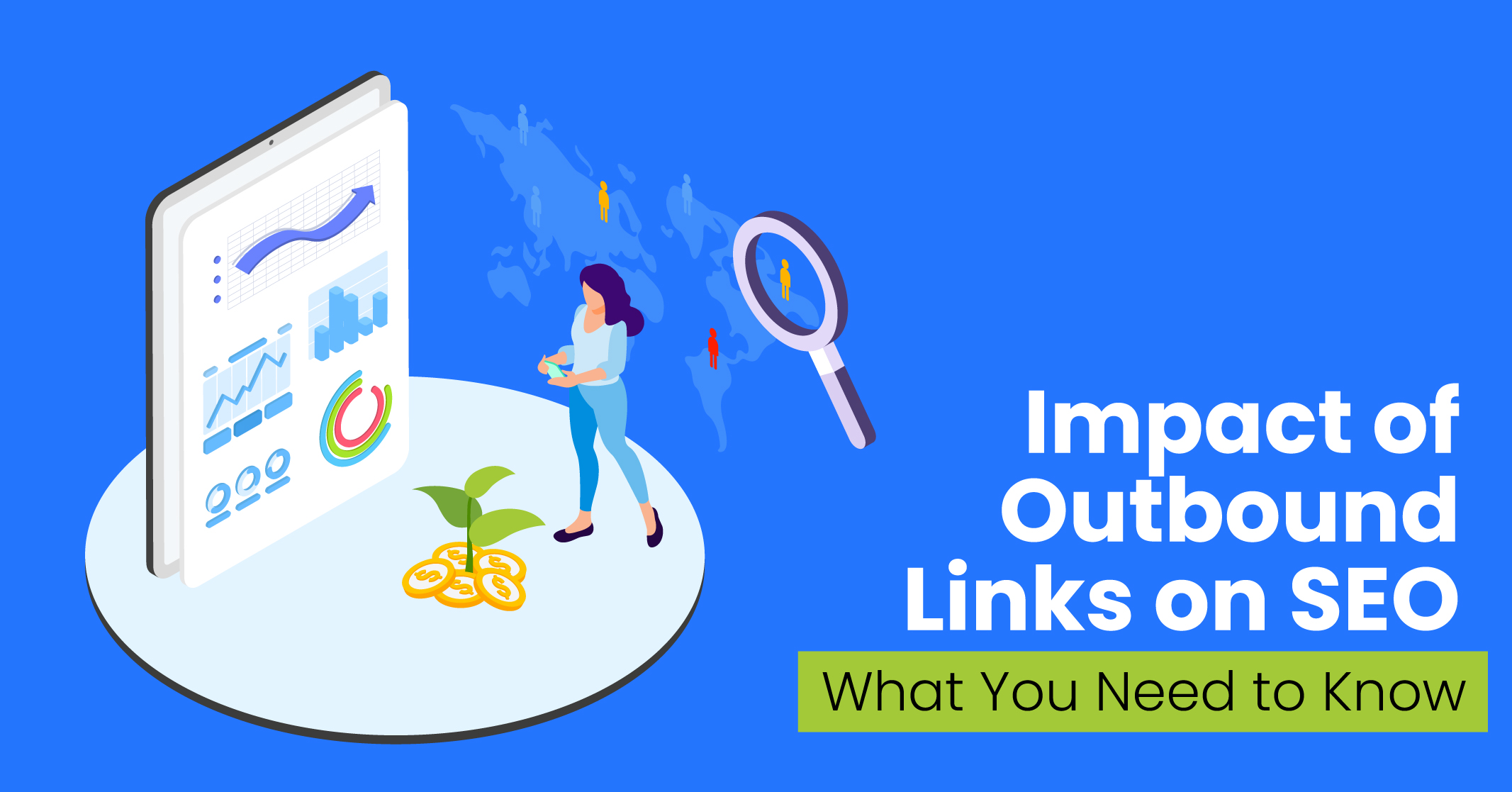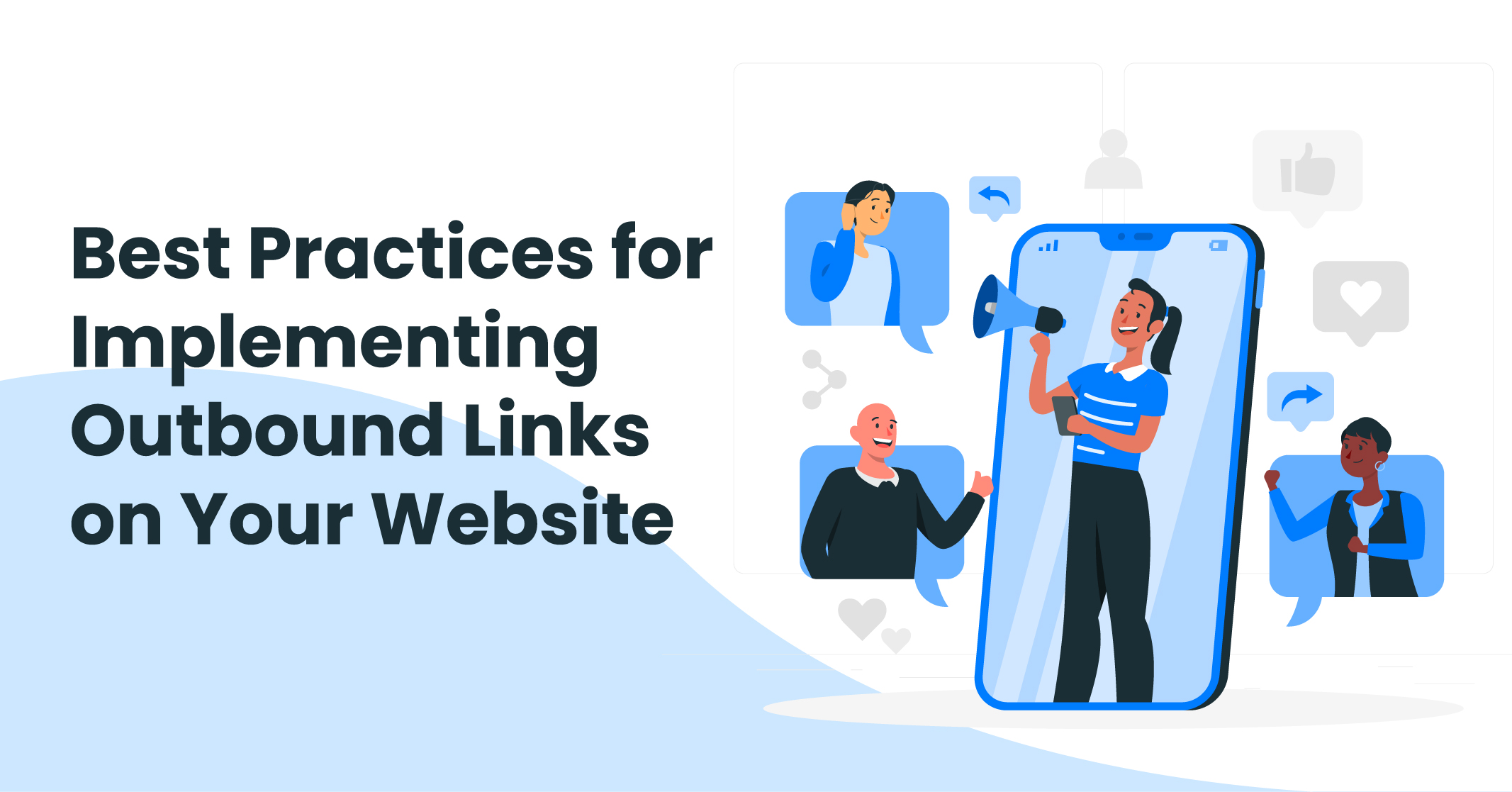I hope you enjoy reading this blog post.
If you want to get more traffic, Contact Us

Click Here - Free 30-Minute Strategy Session
Be quick! FREE spots are almost gone for this Month. Free Quote

While internal links are often lauded for their SEO benefits, outbound links are sometimes overlooked in the link building process. However, optimising outbound links can be an essential consideration for improving website rankings and visibility.
There is some debate within the industry about the significance of outbound links, with some experts suggesting they are a crucial aspect of link building while others disagree. Nevertheless, it’s crucial to pay attention to how we link out from our content and consider the various factors that can impact SEO.

Click Here – Free 30-Minute Strategy Session
Be quick! FREE spots are almost gone for this Month
In this comprehensive guide, we will cover everything you need to know about outbound links, from what they are to how to add them to your content and the best practices for using them effectively.
Whether you’re a beginner or an experienced SEO professional, this guide will provide valuable insights and tips to help you optimise your outbound links and improve your website’s search engine rankings.
Outbound links can be a powerful tool for content creators looking to enhance the quality and context of their work. These links direct readers to other valuable sources of information that can add depth and credibility to your content.
Sometimes referred to as ‘authority links,’ outbound links are frequently used to back up claims and facts with external evidence from respected sources. By doing so, writers can establish their own authority on a topic and provide their readers with a richer and more informative experience.
If you’re in charge of creating content for your business or organisation, it’s essential to understand the importance of outbound links and how they can benefit your overall marketing efforts.
With a little bit of strategy and some best practices in mind, you can use outbound links to improve your website’s search engine rankings and provide your readers with a more valuable and engaging experience.
Learn More: Ultimate Guide to SEO Content Creation!
When it comes to links, there are two types to consider: external and internal. External links, which encompass outbound links, refer to any links pointing from your website to another. In contrast, internal links connect pages within the same website, working to establish topical authority, distribute PageRank, and improve organic visibility.
It’s important to note that outbound links are a subset of external links, which can also include backlinks from other sites pointing to your content. While outbound links may seem straightforward, it’s easy to mistake them for backlinks or inbound links when discussing link building strategies.
To provide some context, outbound links are often used within content to provide additional context or to back up claims with external evidence. For example, a food blogger may link out to a recipe from another website to provide their readers with additional instructions or to demonstrate an alternative cooking method.
Overall, understanding the difference between external and internal links, as well as the purpose and benefits of outbound links, can help you to craft a successful link building strategy and improve your website’s search engine rankings.
Learn More: A Guide to Inbound Marketing Strategy

Why Outbound Links Are Important for SEO
Outbound links are often overlooked in SEO strategies, but they play an essential role in building topical signals and adding value to your content.
Here’s why you should start incorporating them into your content:
Strengthen Topical Signals and Add Depth
Outbound links to relevant content help strengthen the topical signals of your web pages and provide additional context for search engines to understand your site better. They can also add depth to complex topics and provide readers with further resources to learn more.
Adding Value
Outbound links can enhance your content and provide additional value to your readers. By citing sources and referencing information, you can build trust with your audience and provide them with the opportunity to learn more about the topic at hand.
Earn Backlinks from Quality Sites
Outbound links can also help you earn backlinks from other quality sites. By linking to other authoritative sources, you demonstrate your expertise and potentially attract other sites to link back to your content.
Demonstrate Expertise
Outbound links demonstrate your expertise and knowledge of the topic you are writing about. By linking to authoritative sources, you show that you have done your research and can be trusted as a reliable source of information.
Examples of Outbound Links
Here are a few examples of how you can use outbound links in your content:
How to Add Outbound Links
Adding outbound links to your content is straightforward. When referencing a source or providing additional resources for readers, simply hyperlink the text to the appropriate URL.
Be sure to use descriptive anchor text that accurately reflects the content of the link. Finally, check that the link is working correctly and that it takes the reader to the appropriate source.
Learn More: Crafting the Perfect Blog Post: 13 Essential Tips

The debate on whether outbound links affect organic search rankings has been ongoing among SEOs. While the extent of their impact is unclear, linking to authoritative sources can give context to your content and build trust with users. However, unnatural outbound links can harm your website’s performance.
According to a study by Reboot Online, external links are still considered a ranking factor and good SEO practice. Therefore, it’s essential to pay more attention to outbound links when optimising your site for search engines.
Outbound links have been a topic of debate among SEOs for a long time. Here, we’ll address some of the common myths surrounding outbound links and give you the insights you need to understand their impact on your site’s search engine rankings.
Myth 1: Linking Out to Other Websites Can Harm Your Rankings
One of the age-old myths in SEO is that linking out to other websites can harm your site’s search engine rankings by diluting your PageRank. However, this misconception is based on outdated thinking that outbound links act as a ‘PageRank leak.’
PageRank is based on the concept of linking out from one web page to another. So, outbound links are not harmful in themselves. Instead, they can give context to your content and help establish your website as a trustworthy source.
However, Google has been known to hand out manual action penalties for “unnatural links from your site.” This has led many content creators to avoid linking out altogether, but this is not the right course of action to take. Instead, you should carefully choose who you link out to and ensure that the link adds value.
Myth 2: All Outbound Links Should Use the rel= “nofollow” Attribute
Another common myth is that all outbound links should use the rel= “nofollow” attribute to avoid being penalized by Google. However, this is not entirely true.
Google penalizes sites that participate in link schemes or have unnatural outbound links resulting from user-generated content or selling links to other websites. But if a link out to another website is placed editorially to cite a source or help readers navigate to other relevant content, it does not need to use the rel= “nofollow” attribute.
That being said, rel= “nofollow” should be used when links are not editorially placed and are the result of sponsorships, advertisements, or user-generated content in comments and forums.
Additionally, rel= “sponsored” and rel= “ugc” can be used as alternatives to rel= “nofollow” when a link has been paid for via advertising or sponsorship or comes from user-generated content.
Learn More: No Follow Links Vs Follow Links – A Comparative Study
PageRank, Google’s authority metric for web pages, is likely a term you are familiar with. Although it has not been updated publicly since 2013, it is still relevant today.
However, you may not have heard of CheiRank. Unlike PageRank which focuses on inbound links, CheiRank focuses on outbound links. While it may be a complex concept, it emphasises the importance of carefully considering how you link out.

Outbound links are an important aspect of content creation, and it’s essential to consider them carefully.
Here are some best practices to follow when linking out from your site:
Carefully Consider Your Links
Linking out should not be done just for the sake of doing so. Ensure that your links are natural and used to either cite sources or help your readers navigate to related content. Be mindful of the sites you link out to and verify their credibility.
Use rel=”nofollow” Attribute Where Necessary
If you monetise your website or blog by accepting payment for sponsored posts or advertisements, ensure that you use the appropriate attribute, such as rel=”nofollow,” to indicate that the links are not being sold to improve organic rankings.
Check for Outbound Link Issues
Check your outbound links to ensure that you have not used the rel=”nofollow” attribute site-wide. Use an outbound links checker tool to identify any potential issues and double-check the links to ensure that you are using the appropriate attributes.
By following these best practices, you can ensure that your outbound links are natural, credible, and contribute positively to your content.
Learn More: Top Blogger Outreach Tips to Build Authority

LEAVE A REPLY